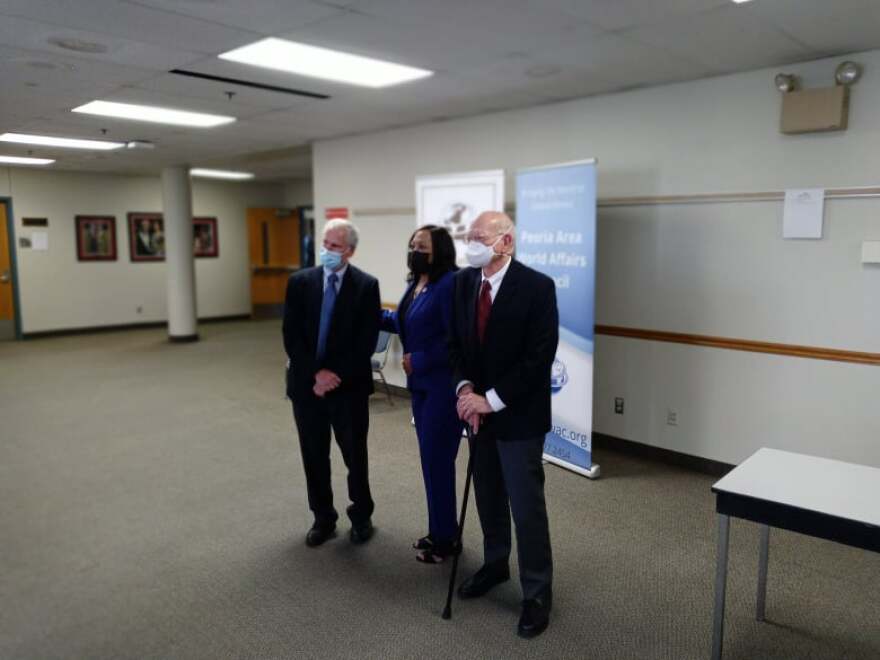Ron Neumann tries to avoid summing up America's 20-year war in Afghanistan using what he calls "bumper sticker phrases."
Neumann was the U.S. Ambassador to Afghanistan from 2005 to 2007. He said several turning points led to America's "disastrous defeat" in the Middle Eastern country.
One factor, Neumann said, is that the strategy was continually changing. He said there's plenty of blame to go around, with the Bush administration pivoting attention to Iraq in 2003, and the Obama administration's "unrealistic" surge timelines and mixed messaging on nation-building efforts.
"We started off by trying to be fast and cheap, and then decided to be fast and expensive, and neither one of them worked very well. So I think you can pick out a lot of things which are more complex than just trying to, say, build democracy, which frankly, I don't think any administration really was dedicated to as a goal," Neumann said. "The goal was, how do you get out? How do you have some modicum of stabilization, so you can go away without being responsible for disaster?"
Neumann said the same dynamics played out in Iraq.
"If you have a shattered country, you don't have anybody can power off to. So if you don't want to just say, 'Well, you know, screw it, you guys. Just collapse. I'm leaving, 'you have to have something, and then there's no easy answers to them," he said.

Neumann was one of two keynote speakers at the Peoria Area World Affairs Council anniversary gala at Bradley University on Thursday. He was joined by Robert Ford, the U.S. Ambassador to Syria from 2010 to 2014, and political counselor at the U.S. Embassy in Baghdad from 2004 to 2006.
Ford said the societies in countries like Iraq or Afghanistan are complex, and often difficult for Americans to understand.
"People should understand, there's only so much that an American soldier than an American F-16. Or that an American diplomat can fix. If you're working with a corrupt government, an American infantry soldier or a special operations fighter is not going to be able to fix that corrupt government. An F-16 can't fix unemployment, it can't fix a bad business climate. And an American diplomat can't fix those things, either," Ford said. "And so when we go into things like this, I think we need to think beforehand, understanding the societies and the complexities. Are these things really, that we're going to be able to fix?"
Ford said the end of the war in Afghanistan leaves America at an inflection point. Does the country want to continue trying to solve problems abroad, or step back and turn inward?
"Resources are scarce, and we can't do everything. And so it's time to do a better job of figuring out what's really worth our time and attention," Ford said.
Neumann added the U.S. role in the world isn't necessarily an either/or question.
"That's a luxury we don't have. There are a lot of people who will want to answer it, as well, 'that means we shouldn't do anything.' Well, you know, Afghanistan has the potential to be a rallying place for the Islamic State," Neumann said. "It has the potential to send instability into Pakistan, which is a nuclear country. And when you can end up with a nuclear war with India., it has the potential, you know, it's next door to Iran, it has potential for destabilizing Central Asia. So just saying it's too hard is also not an answer."
Neumann said the question posed by Ford is a hard one deserving of serious thought, not a "bumper sticker" or politically partisan answer.
"There's a role to explain to Americans to how complicated this is, and to keep it moving forward with a long term vision, but without major involvement," he said.


